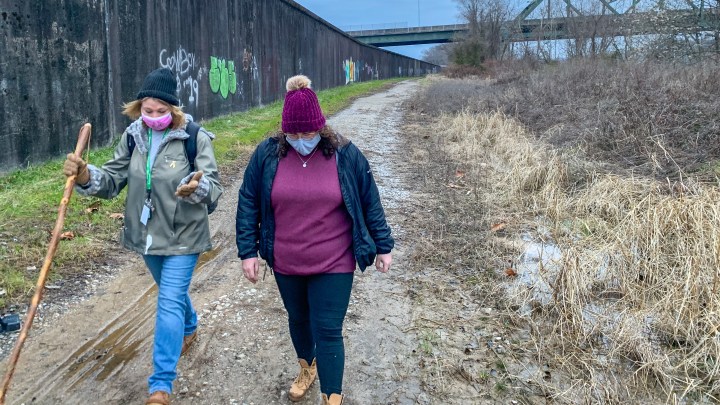
How many people have been homeless during the pandemic?
How many people have been homeless during the pandemic?

Michelle Massie is an outreach worker in Huntington, West Virginia. She, along with dozens of volunteers in the city, went out on Jan. 27, 2021 to conduct field interviews with people experiencing homelessness. She approached a woman sleeping in a tent to ask her a series of questions about her recent experience living outside. Massie asked, “How many months in the past three years have you been homeless?” The woman paused for a moment and responded: “About seven months?”
HUD requires the point-in-time count for communities to receive funding to combat homelessness. The count has to be done every year during the last 10 days of January, and it gives HUD an idea of how many people are without a home. But some critics say the count is flawed.

“Unfortunately, the way the PIT count is designed, it really falls very far short of that goal,” said Maria Foscarinis, founder and executive director of the National Homelessness Law Center. “In order to address the crisis of homelessness, it’s important to know how large it is, and having a sense of the size of a problem helps in figuring out how to respond to it.”
HUD expects to release that data collected in January in the fall of this year. President Joe Biden has extended an eviction moratorium through the end of March. It’s hard to say how many people have lost housing during the pandemic.
Foscarinis said HUD’s count routinely falls short of that actual number of people experiencing homelessness because of the definition of homelessness it uses for the count. That definition, said Foscarinis, doesn’t include people who have lost their home and are managing to stay with friends or a family member.
“They’re sleeping on somebody’s kitchen floor, friends and relatives, on someone’s couch. And they are not counted at all. And this is a much larger number of people and a group of people who are disproportionately likely to be people of color,” she said.
Traci Strickland, who oversees homeless services in Kanawha County, West Virginia for the Kanawha Valley Collective, said that limiting the count to one day leaves out a lot of people. “The point in time is a one-day snapshot. So if you can’t find a person experiencing homelessness on that day, they don’t get counted,” Strickland said.

While HUD gives communities a 10-day window to conduct the count, volunteers are required to ask interviewees if they slept outside on one specific night in that timeframe.
But, Strickland said, at the very least, the count encourages workers and volunteers to see what people sleeping outside have to experience every night. “I think it gives awareness to service providers and volunteers. When you go out and actually canvass your area looking for people who are sleeping outside,” she said.
According to HUD’s website, funding awards are based on communities collecting “valid and reliable data during the count.” But, when asked to clarify exactly how these numbers impact funding decisions, a representative from HUD declined to comment.
There’s a lot happening in the world. Through it all, Marketplace is here for you.
You rely on Marketplace to break down the world’s events and tell you how it affects you in a fact-based, approachable way. We rely on your financial support to keep making that possible.
Your donation today powers the independent journalism that you rely on. For just $5/month, you can help sustain Marketplace so we can keep reporting on the things that matter to you.












